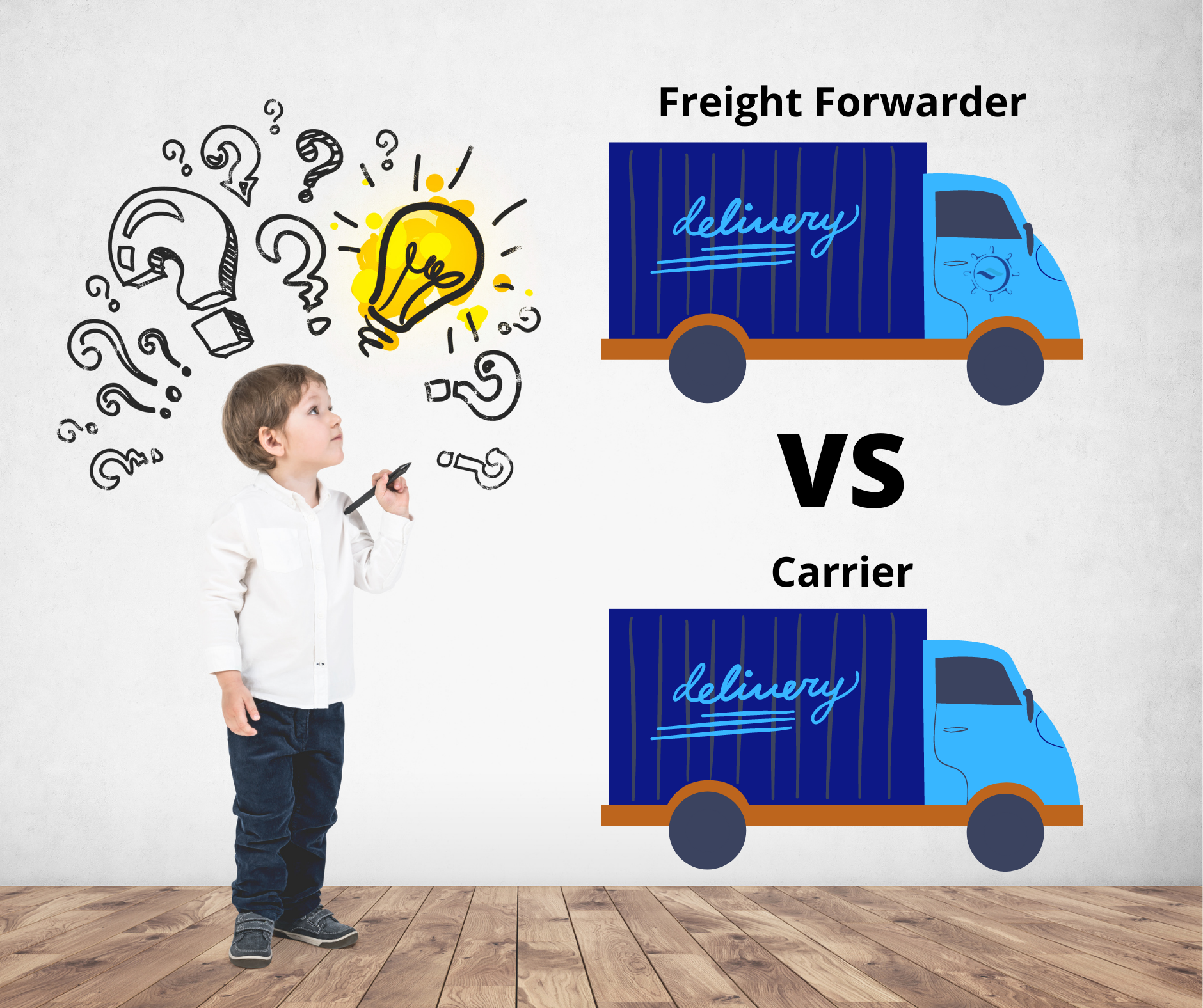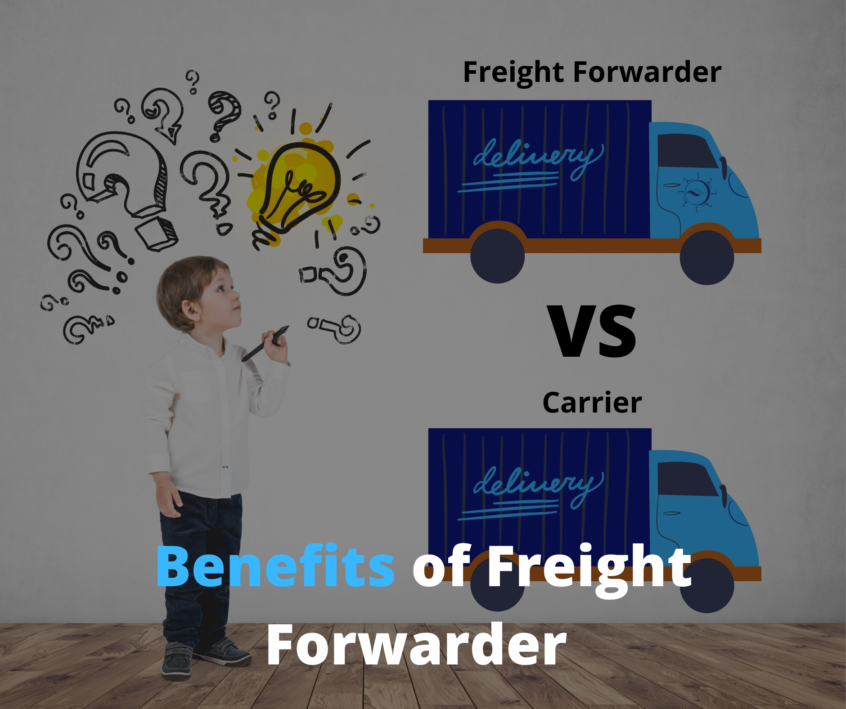
Businesses must consider whether the benefits of using a freight forwarder outweigh those that are associated with using a transportation carrier. Transportation today is a challenging task regardless of the modality that is used. For example, there are delays for many businesses that are using containers, trucks, airplanes, and traditional cargo ships. This has led to a reconsideration of the transportation options for all businesses in the wake of the COVID-19 pandemic.
Choosing the right route
When considering your shipping options, it is important to consider the costs and benefits of your choices. This is a major decision that can make a difference when seeking a competitive advantage in modern markets. Using a freight forwarder vs. a transportation carrier has advantages and disadvantages. The critical point is ensuring that you choose the right service provider at the right time and use them in the right way.
New shippers sometimes struggle to understand the differences between the two modalities. They tend to choose the one that is nearest or appears to offer the cheapest service. Such a decision may not necessarily be the best given the delays that are experienced in virtually all transportation routes that are available for international cargo. The broker or freight forwarder has the advantage of extensive knowledge of the industry and the contacts that can make it easier to deal with crises when they arise.
Who to include in your logistics department?
In most cases, freight forwarders become an outsourced part of your logistics department. Outsourcing in this way has its own challenges because you are effectively dealing with an organization that is not under your direct control. It is therefore important to ensure that quality issues are addressed at the contractual stage. You must appoint one of your employees to monitor and evaluate their compliance with the contract. Having a service level agreement will be extremely useful in these situations.
The benefit of using an external actor to undertake the freight or forwarding role is that they offer you some flexibility. During times of low demand, for example, you may be able to suspend the contract and that can reduce the overhead that you have to pay. However, when you have significant demand it is possible to call upon a freight forwarder to assist. This also means that you are not tied down to a specific carrier and can negotiate favorable terms depending on how the market is responding.
Dealing with complex transportation routes
The most popular routes are the ones that offer exceptional service, and which are not disturbed by regular delays. These are few and far in between during the COVID-19 pandemic. It is imperative to continuously scan the market for potential good deals that can replace the current arrangements you are working with. The flexibility of a freight forwarder is that they open a world that is closed to those that are tied to specific contracts on specific routes. If you notice that there are delays that are ongoing or likely to happen, it is possible to change your route completely.
The principal interest of the customer is that they get their cargo on time and intact. They are not particularly concerned about the details of your logistics arrangements. Try to make life as comfortable and as convenient as possible for your customers regardless of the size of their cargo and their location. Additionally, you should take advantage of rates that are offered as an incentive to new entrants. This means that you can operate with flexibility depending on the circumstances without having to pay penalties for failing to adhere to a restrictive contract.
Keeping freight rates low
The freight rates that are offered to you will directly impact the costs of production as well as the price the customer has to pay. It makes sense to ensure that you get the best ocean freight rates possible. This can only happen when you are operating independently within the shipping industry. This remains a highly volatile and unstable market which calls for imaginative solutions with outsourcing being one of them.
Ocean freight rates are changing on a weekly basis. This is a level of volatility that has not been experienced in this market before. Many experts are laying the blame on the pandemic. Regardless of the negative effects of the pandemic, it is important that shippers take advantage of the market conditions and engage with service providers that are offering the best deals.
The most effective use of carrier capacity
Carrier capacity has become a precious commodity in the modern shipping industry. As forecasting becomes a challenge shippers have to deal with rates that change daily. Having capacity allows you to absorb any fluctuations in price and demand. For instance, in the run-up to Christmas 2021, there was an increase in demand as consumers moved to online shopping and looked for personal protective equipment (PPE). This was the time when consumers were also doing their Christmas shopping. The demand was much higher than had been anticipated given the expectation that the pandemic would depress the economy.
A series of crises including one involving the Suez Canal meant that there were many shippers who were concerned about capacity. Others were trying to find creative solutions that would continue supporting their long-term customers despite the significant delays that were taking place at different ports across the globe. The routes from China to the USA were particularly affected. However, there were also reports of logistical nightmares in Europe. Consequently, the overall price of shipping has gone up and the number of delays have taken the same direction. This means that customers are not getting the kind of high-quality service that they had become accustomed to in the past.
Making use of restrictive shipping contracts
The shipping contract is an important document in the shipping industry because it provides the nearest equivalent to a guarantee of space. During the crisis, some organizations were willing to break contracts because they found customers that were looking for quick shipping. There was a re-categorization of customers with priority given to those that were shipping high-value items and were willing to pay over the standard price.
A carrier that is not restricted by a contract is not obligated to provide a specific number of containers. The advantage of working with an international freight forwarder is that they can take advantage of high-volume contracts through their association with multiple carriers. This means that you get a competitive price and increased flexibility. Your cargo will be coupled with an entire pool of cargo units which means that you enjoy benefits associated with economies of scale.
Wrapping up
The demand for space and the volatility of the market means that shippers are increasingly considering the option of working with a freight forwarder. This is an alternative to traditional shipping where you contact a carrier directly. The advantages of a freight forward stem from its flexibility on price, space, and routes.



2 Comments on “Benefits of Freight Forwarder Versus a Transportation Carrier”
I totally agree that it is important to choose a freight shipping provider that can offer the best possible deal based on the market conditions. My aunt mentioned that she is planning to send 8-12 boxes of goods to our relatives overseas next week, so she is planning to find a reliable freight shipping company provider. Her goal is to ensure that all the boxes could be shipped out without breaking her budget, so I will ask her to consider your tips.
It’s a Great and Informative Article on Freight Forwarder